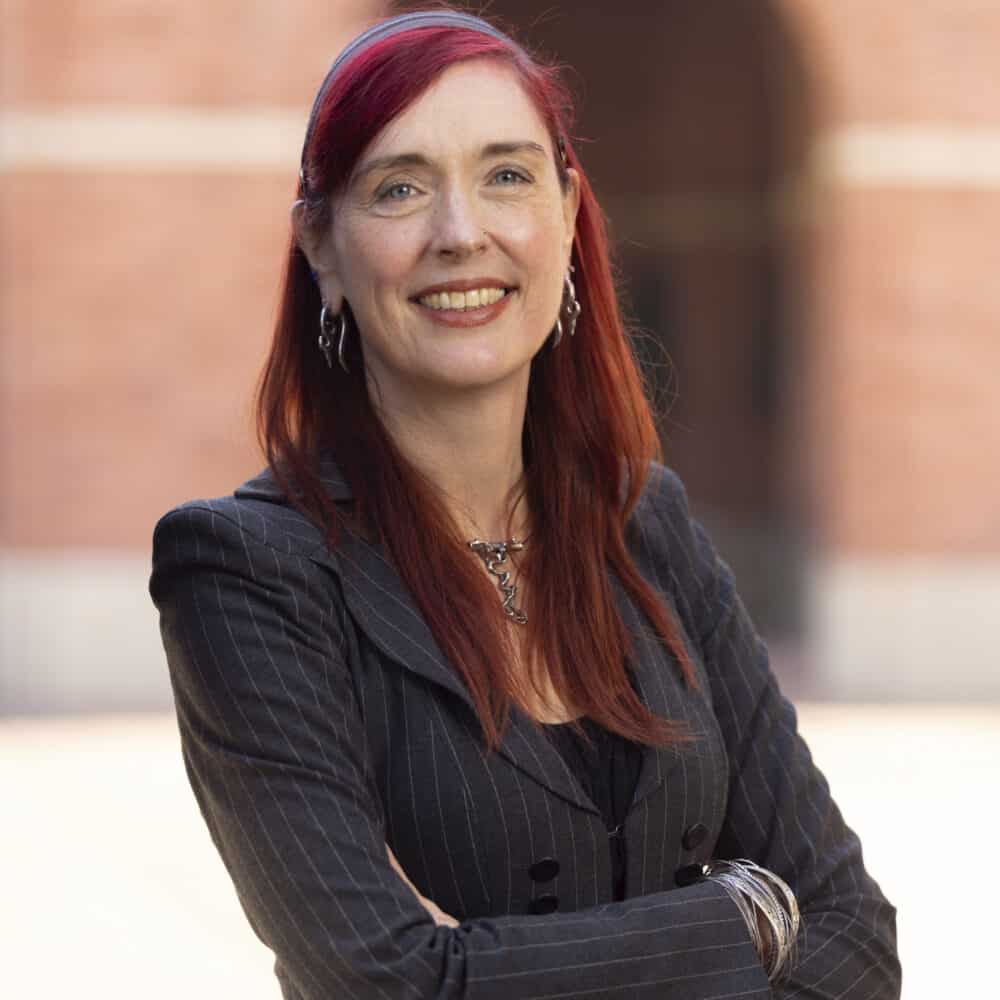The USC Schaeffer Institute for Public Policy & Government Service announced a new initiative today that leverages behavioral science to create more effective public policy.
The Behavioral Science & Policy Initiative at the USC Schaeffer Institute will conduct research to understand people’s beliefs and behaviors to create policies and communication that better fit people’s needs.

“We want to help policymakers make a difference,” said Wändi Bruine de Bruin, the initiative’s director and Schaeffer Senior Scholar and Provost Professor of Public Policy, Psychology, and Behavioral Science at the USC Price School of Public Policy. “And that means creating policies and policy communication that better inform the people they want to reach.”
For example, Bruine de Bruin and her team interviewed U.S. residents about climate change terminology to inform how the United Nations’ Intergovernmental Panel on Climate Change (IPCC) communicates its findings. One of the interviewees summed up the findings by saying that communication about climate policies are often “talking way over people’s heads.”
“Our interviewees wanted climate change communication to use everyday language,” Bruine de Bruin said. “The findings were consistent with our previous research showing that simple language makes information easier to understand. Even highly educated people prefer it.”
Behavioral science is a growing interdisciplinary field that combines insights from psychology, economics, and other social sciences to understand how people perceive risks, how they process information about risks, and what motivates attitude and behavior change.
Click here to watch a video of Bruine de Bruin explaining behavioral science and communication related to climate change and health.
The initiative is the first new policy area for the USC Schaeffer Institute since its formation was announced in February. The initiative will use the Schaeffer model, whereby academic experts share evidence-based research with policymakers.
“The Behavioral Science & Policy Initiative will establish the USC Schaeffer Institute as an international leader in using behavioral science to inform public policy for the betterment of society,” said Dana Goldman, director of the Schaeffer Institute.
The initiative will also foster interaction between behavioral scientists across USC, including faculty and students, through a co-hosted seminar series and events. Additionally, the initiative will support the Behavioral Science Society for undergraduate students, graduate students and postdocs.
The initiative is based at USC in Los Angeles but will take advantage of the USC Schaeffer Institute’s offices at the university’s Capital Campus in Washington, D.C.
An academic council composed of scholars from across USC will support the initiative. They are:
- Allison Agsten, director, Center for Climate Journalism and Communication at USC Annenberg School of Communication and Journalism;
- Joe Árvai, director, Wrigley Institute for Environment & Sustainability at USC Dornsife College of Letters, Arts and Sciences;
- Jason Doctor, Norman Topping Chair in Medicine and Public Policy and Professor, USC Price School of Public Policy and Senior Scholar, USC Schaeffer Center for Health Policy & Economics;
- Kayla de la Haye, research scientist, Center for Economic and Social Research at USC Dornsife;
- Norbert Schwarz, Provost Professor of Psychology and Marketing, USC Dornsife and USC Marshall School of Business; and
- Gülden Ülkümen, associate professor of marketing, USC Marshall School of Business.

The Schaeffer Institute
The USC Leonard D. Schaeffer Institute for Public Policy & Government Service develops evidence-based solutions to the nation’s most pressing policy issues and fosters civic engagement among the next generation of public service leaders. Established by an historic gift from Leonard D. Schaeffer, it houses two flagship programs: the Leonard D. Schaeffer Center for Health Policy & Economics and the Leonard D. Schaeffer Fellows in Government Service.
Since its inception in 2009, the USC Schaeffer Center for Health Policy & Economics has established itself as one the world’s top health policy research organizations. A joint enterprise with the Price School of Public Policy and the Mann School of Pharmacy & Pharmaceutical Sciences, the Schaeffer Center is a recognized nonpartisan voice helping to shape health policy in Washington, DC.
The Leonard D. Schaeffer Fellows in Government Service program exposes undergraduate students to government work through full-time, high-level internships at the federal, state, and local levels. Schaeffer Fellows represent a diversity of backgrounds, political perspectives, and academic disciplines; common among them is their interest in public service and engaged citizenship. Since 2015, the program has supported 418 undergraduates from five partner universities at more than 200 different government offices and agencies.
Building on the successes of these programs, the Schaeffer Institute serves as a policy laboratory to develop and test ideas generated by the USC academic community and provides a forum to reach federal policymakers. It creates opportunities for students to engage in public service and develop an informed view of government. The Schaeffer Institute has offices at USC in Los Angeles and Washington, DC.
Sign up for Schaeffer Center news

You must be logged in to post a comment.